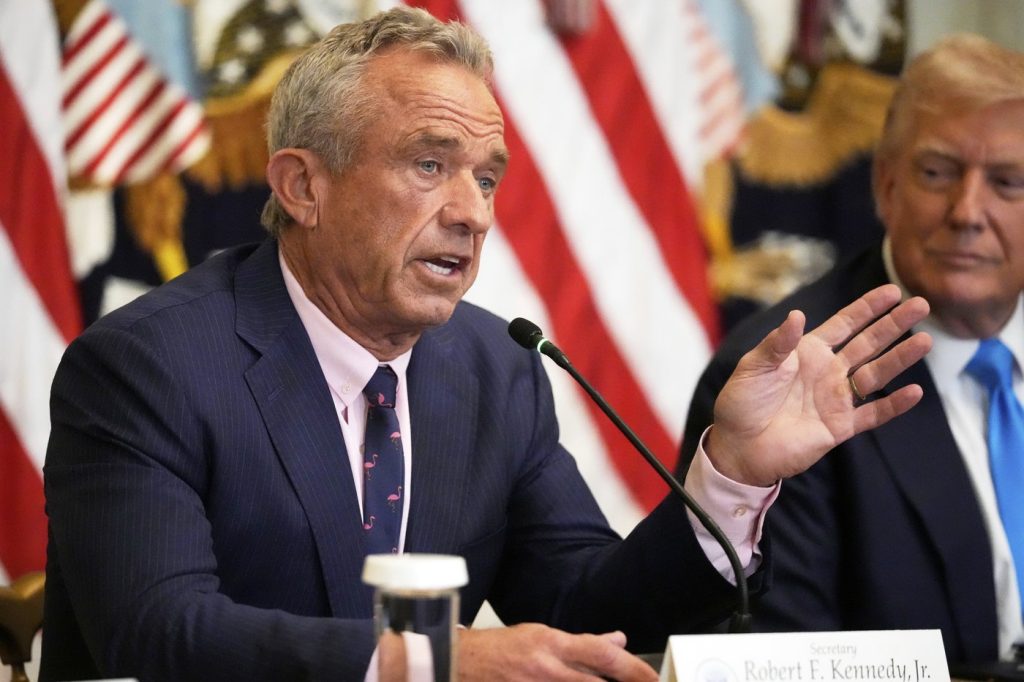On August 5, 2025, the U.S. Department of Health and Human Services announced the cancellation of contracts and the withdrawal of funding for several vaccine projects aimed at combating respiratory viruses, including COVID-19 and influenza. This decision was revealed by Health Secretary Robert F. Kennedy Jr., who stated that 22 projects, amounting to $500 million, utilizing mRNA technology will be halted.
Kennedy’s move marks a significant shift in the nation's approach to vaccine development, reflecting his long-standing skepticism regarding vaccines. The health secretary has previously showcased his doubts about vaccinations, including retracting recommendations for COVID-19 shots and dismissing a panel responsible for vaccine guidelines. His actions have raised concerns among public health experts regarding the future of immunization strategies amid ongoing viral threats.
In a video statement, Kennedy criticized mRNA vaccines, explaining the current administration's intention to focus on developing alternative vaccine strategies. He emphasized prioritizing "safer, broader vaccine strategies" such as whole-virus vaccines, which can withstand viral mutations. Critics of this decision, including experts in infectious diseases, have warned that abandoning mRNA programs could hinder public health efforts to combat future pandemics. They argue that mRNA technology has proven safe and effective, particularly in controlling the COVID-19 pandemic, and its suspension could jeopardize preparedness against emerging viral threats like the bird flu.
Mike Osterholm, a University of Minnesota infectious disease expert, expressed deep concern over Kennedy’s decision, describing it as one of the most dangerous public health moves in his decades of experience. He highlighted that mRNA technology enables rapid vaccine production, which is crucial in the event of a pandemic requiring a swift response. Similarly, Dr. Paul Offit from Children’s Hospital of Philadelphia noted that existing mRNA vaccines have saved millions of lives and emphasized the importance of continued investment in this technology.
Despite the halting of these mRNA vaccine projects, the Health Department clarified that other uses of mRNA technology within its framework remain unaffected. FDA-approved mRNA vaccines currently include those for COVID-19 and respiratory syncytial virus (RSV), although no mRNA flu vaccine has received approval yet. Moderna had been exploring a combination vaccine for COVID-19 and the flu, believing that mRNA could enhance the production of flu vaccines more efficiently than traditional methods.
The cessation of these projects indicates a definitive pivot in the health department’s vaccine development priorities. Health officials have pledged to invest in “better solutions” for vaccine technologies. Kennedy reassured that, despite the shift, the HHS remains committed to supporting the development of safe and effective vaccines for all Americans who desire them.
During a press conference in Anchorage, Alaska, Kennedy discussed the possibility of creating a “universal vaccine” that aims to mimic natural immunity. He asserted that this new approach could be effective not only against coronaviruses but also against the flu, positioning it as a comprehensive strategy for enhancing public health in the future.
The announcement and its implications have sparked significant debate among health professionals, vaccine supporters, and the public, highlighting the ongoing tensions around vaccination policies and public health strategies amid the evolving landscape of infectious disease threats.












